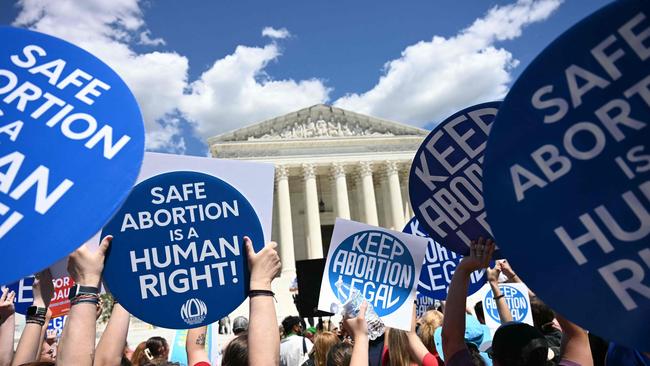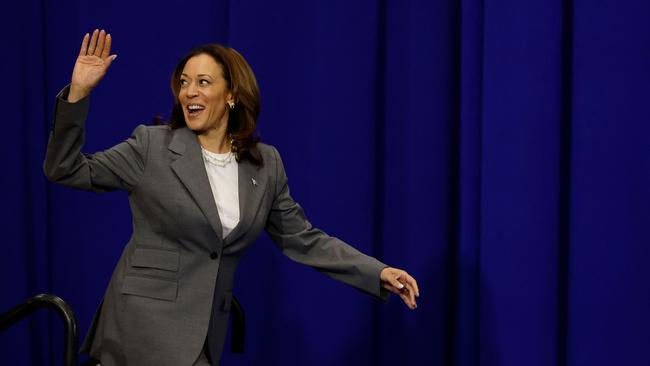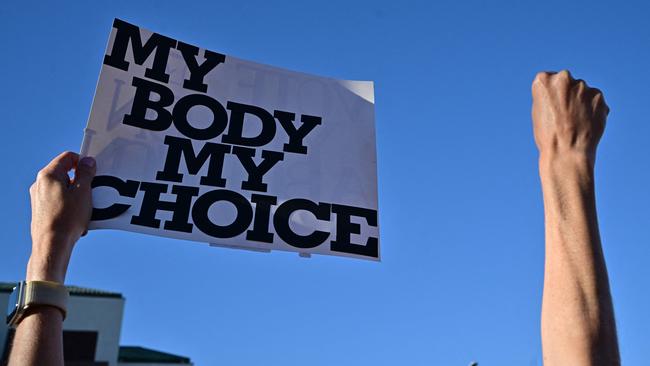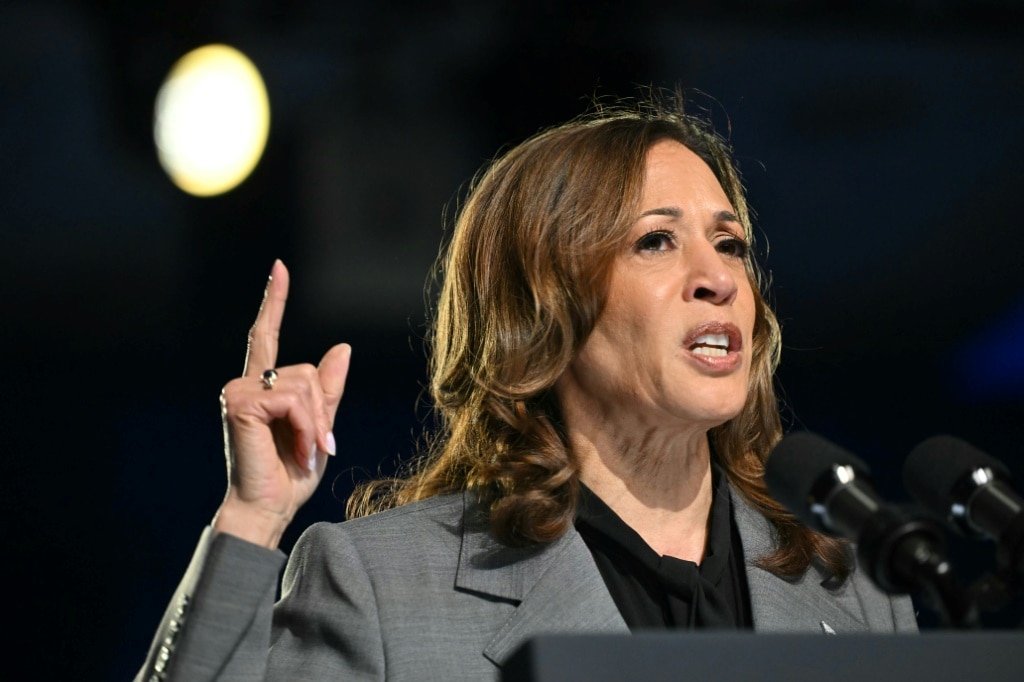
Donald Trump’s choice of conservative Supreme Court justices as president severely curtailed women’s rights, so the Democrats’ argument goes, paving the way for 14 states to ban the procedure outright and numerous others to enact new limits.
Yet the number of abortions performed has increased more than 15 times as fast as population growth across the US since Roe was overturned, suggesting women have still been able to access the procedure, notwithstanding the economic burden for some women of having to travel to access it.
In May 2022, 84,100 abortions took place in the US, according to Kaiser Family Foundation, rising to 89,110 a year later, ahead of a further jump to 98,990 a month on average in the first three months of this year.
The decline in legal abortions in states with bans was more than offset by legal demand elsewhere.

The impost on Idaho or Texas women – especially those with few means – of having to travel to neighbouring Oregon or New Mexico for an abortion is absolutely a valid political debate, but the topic has sucked the oxygen out of a broader problem about US healthcare and health that’s at least as important. Americans are becoming sicker – and sicker at younger ages – despite world beating consumption of pharmaceutical products and the world’s highest spending on healthcare.
Consider these statistics. The rate of early onset cancers in adults under 50 has surged 79 per cent since 1990, according to a British Medical Journal study published last year.
Rates of autism, a lifetime debilitating condition, among children have soared from one in 150 in the 1950s to one in 36 in the US, without any change in the clinical definition.
Over the same period, the share of Americans who are obese has jumped from 12 per cent to 40 per cent, including a fifth of children.
That has contributed to half of adults now having type 2 diabetes or pre-diabetes, up from 3 per cent in the 1970s, according to the American Heart Association, contributing to heart disease deaths of more than 700,000 Americans a year. The prevalence of auto-immune diseases is rising between 3 and 12 per cent a year, now affecting 50 million Americans, according to the US National Health Council.
More than 41 per cent of Americans will contract cancer in their lifetime, according to the National Cancer Institute. Rates of dementia among young people in the US aged 30 to 44 have soared during the 2010s, according to a report by Blue Cross Blue Shield Association. Some of these trends – which too often have no or unsatisfactory explanations given alcohol and tobacco use have been falling and exercise trends haven’t changed noticeably for many years – are common throughout the developed world.
Male sperm counts have dropped around 60 per cent since the 1970s, amid reports that male erectile dysfunction now afflicts almost 20 per cent of young American men and rising infertility rates among women of child-bearing age. “It’s basically like all of us are a little bit dead while we’re alive … We are getting destroyed, and it’s very recent, and it’s accelerating,” health campaigner Casey Means said in a recent interview with podcaster Joe Rogan.
While abortion rights have dominated the healthcare debate during this election cycle, Trump’s campaign has at least spawned a parallel Make America Healthy Again, movement under the auspices of former presidential candidate Robert F Kennedy, a veteran critic of the US food and pharmaceutical industries, which he argues have come to hold a pernicious influence over US regulators.
For instance, the American Medical Association, the Centre for Disease Control and Prevention and the Food and Drug Administration are substantially funded by big food and pharmaceutical companies, creating an obvious potential conflict of interest. “The most profitable thing today in America is a sick child,” Kennedy routinely says in his presentations, highlighting the potentially perverse incentive of a healthcare industry that actually profits from a chronic disease epidemic.
Indeed, in the US the new wonder weight loss drug Ozempic will soon be marketed for children as young as six in the US. Kennedy, Means and others argue massive changes to the ingredients in US food over the past few decades, such as a switch from saturated animal fats to “seed oils” in fast food, and a wrongheaded preference for sugar and carbohydrates over fat and protein, have wrought havoc on metabolic health.
It’s too easy to simply blame American or Western “laziness” when outcomes vary so starkly across rich countries. French kids, for instance, are 60 per cent less overweight than their American counterparts. Why are the comparatively chain-smoking Spanish, with vastly lower incomes, living so much longer (and thinner) lives than Americans?

People can’t make the right choices if they have little option but to consume unhealthy ingredients or at least no idea how much damage their current choices are doing to their current or future selves. Neither major political party in the US likes to talk about this chronic disease bomb because both sides have been culpable in facilitating bad outcomes over many years, and the media can be reluctant to investigate given the health and food sectors are such big advertisers.
If the choice is between public funding of Ozempic, which could cost US taxpayers trillions of dollars a year, or smarter food regulations, surely the answer is obvious.
For all the monotony of the presidential election, it has at least given a glimmer of hope to a future wholesale inquiry into the causes and solutions to this serious public health crisis.







If Kamala Harris becomes president after November 5, her victory will be in no small part due to the crazed reaction to the returning of abortion laws to the 50 US states, which occurred in June 2022 after the Supreme Court overturned the historic Roe v Wade decision of 1973.